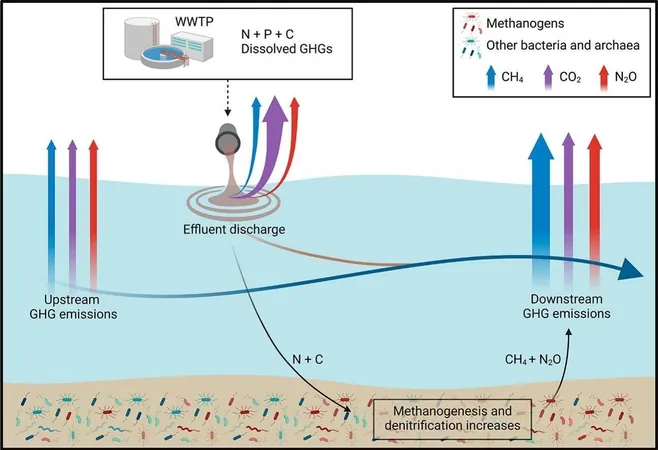
Unlocking the Secrets to Effective Exam Revision: Tips from Neuroscience
2024-11-04
Author: Noah
As the exam season approaches globally, students find themselves grappling with the daunting task of synthesizing everything they've learned over the term. Many are left wondering: is more study time the answer, or is there a smarter way to prepare for exam day?
Recent research in neuroscience sheds light on how our brains absorb and retrieve information, particularly during adolescence. According to cognitive neuroscientist Bogdan Draganski from Insel University Hospital in Bern, Switzerland, there are no universal shortcuts to academic success. Learning is deeply personal; each individual has unique motivational and cognitive profiles, meaning that one method cannot cater to all students.
Understanding How Our Brains Learn
Neuroscience reveals that our memories are physically represented as connections between neurons, predominantly in the hippocampus and amygdala regions of the brain. When we encounter new information, neurons form synapses, creating a complex web of connections. However, the intricacies of how we learn more complicated information remain somewhat of a mystery.
Draganski emphasizes that learning is an intricate neural dance involving sensory input, emotional states, and cognitive processing, all shaped by individual factors such as gender, socio-economic background, and personal experiences. Thus, it's crucial for students to discover their own effective learning strategies, which may diverge from conventional educational teachings.
Harnessing the Power of Stories
Active engagement with material is paramount. The processes of encoding, where information is first learned, and consolidation, where it's solidified in memory, are improved through techniques like active recall—testing oneself rather than merely rereading notes. Neuroscientists note that our brains thrive on novelty, making new and engaging information more memorable.
Moreover, storytelling is a powerful tool for enhancing memory retention. Research indicates individuals recall about 50% more from narrative texts compared to descriptive ones. Infusing stories into learning can substantially boost information retention.
The Stress Factor
While a small amount of stress can enhance learning by sharpening focus, excessive stress can have detrimental effects. High levels of anxiety may impair memory retrieval and hinder the incorporation of new information. Finding a balance is crucial; manageable stress can motivate students, but overwhelming pressure can create obstacles, particularly on exam day.
Science-Backed Strategies for Better Learning
Draganski offers practical advice for students keen on improving their learning outcomes:
1. Prioritize Healthy Living: Maintain a balanced lifestyle. Sleep, nutrition, and physical activity are key to optimal cognitive function. Sleep plays a vital role in memory consolidation. Teens should aim for 8 to 10 hours of sleep nightly to ensure cognitive prowess. If early school start times interfere with this, advocacy for later starts may be necessary.
2. Stay Active: Regular exercise significantly enhances brain function and reduces cortisol levels, the stress hormone. Even minor physical activities—like a short walk—can effectively improve mood and concentration.
3. Create a Supportive Environment: Meaningful parental support is vital. Collaborate with parents to establish a low-stress environment conducive to studying. Techniques such as mindfulness and deep breathing can further alleviate exam-related anxiety.
By employing these science-based strategies, students can enhance their revision effectiveness, making the lead-up to exams a more productive and less stressful experience. Ultimately, understanding and capitalizing on how your brain works can unlock the true potential of exam revision, paving the way to academic success!









 Brasil (PT)
Brasil (PT)
 Canada (EN)
Canada (EN)
 Chile (ES)
Chile (ES)
 España (ES)
España (ES)
 France (FR)
France (FR)
 Hong Kong (EN)
Hong Kong (EN)
 Italia (IT)
Italia (IT)
 日本 (JA)
日本 (JA)
 Magyarország (HU)
Magyarország (HU)
 Norge (NO)
Norge (NO)
 Polska (PL)
Polska (PL)
 Schweiz (DE)
Schweiz (DE)
 Singapore (EN)
Singapore (EN)
 Sverige (SV)
Sverige (SV)
 Suomi (FI)
Suomi (FI)
 Türkiye (TR)
Türkiye (TR)